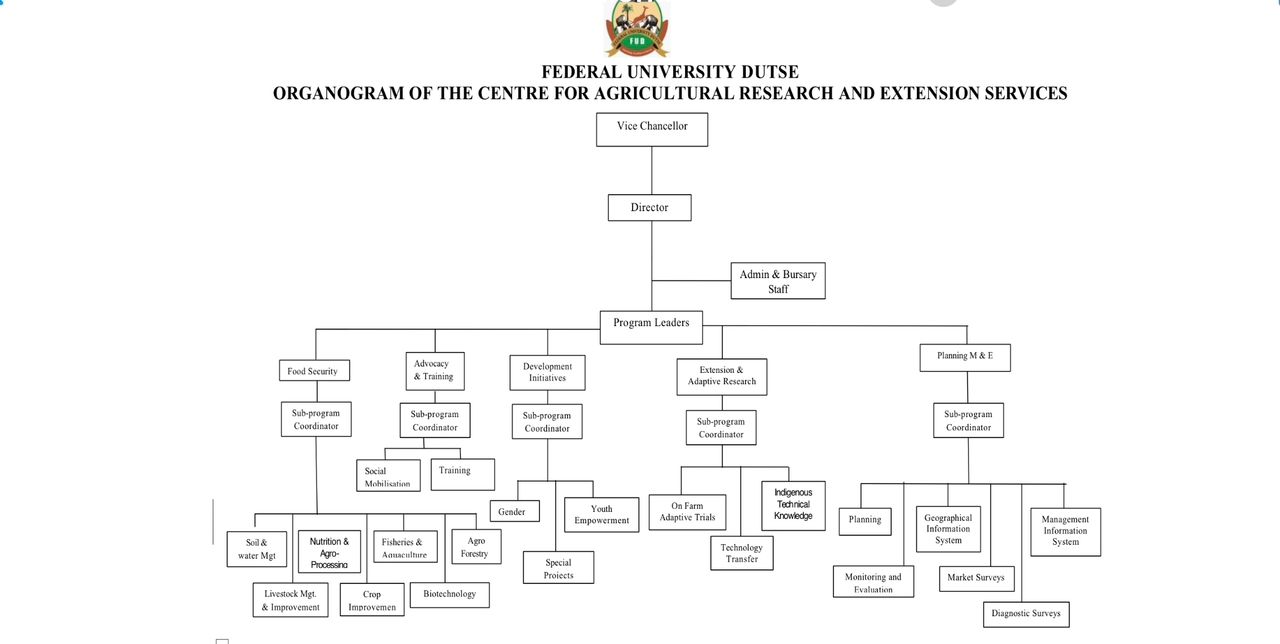ABOUT US
Centre for Agricultural Research and Extension Services
OUR KEY OBJECTIVES ARE
Engage in training, learning and consultancy focusing on capacity development of staff from Agricultural Colleges, Private Commercial Farms, Teaching and Research Farms, farmers and farmers ‘group.
Ensure that communities in mandate areas have access to extension information and skills to improve livelihoods, enhance food and nutrition security, natural resources and energy systems.
Mobilize and link communities with partners and agencies for sustainable solutions to ending food insecurity and poverty among the vulnerable.

PROJECTS
GENETIC MODIFICATION OF SOME SELECTED ENDANGERED INDIGENIOUS TREE SPECIES IN JIGAWA STATE, NIGERIA.
Jigawa State is located between latitudes 11oN to 13o N and longitudes 8o E and 10.15o East. with a population of 4,384,649 persons, (NPC, 2006) and 5,322.746 persons in 2017 projected from 2006 census figures at 2.8% growth rate. It covers a land of about 22,410 square kilometers. Most part of the State lies within the Sudan vegetation zone. The state is boarded by Kano and Bauchi states. There are traces of Guinea Savannah on some parts of the southern borders. The mean daily minimum and maximum temperatures are 19oC and 35oC respectively. The rainy season lasts between May to September with a range of 1000mm-2000mm. Popular rain-fed season crops include; millet, sorghum, maize, cowpea, rice, groundnut, sesame, cotton and watermelon. Major crops grown during dry season are: Tomatoes, onion, wheat, lettuce, carrots, maize, sugarcane and pepper.
